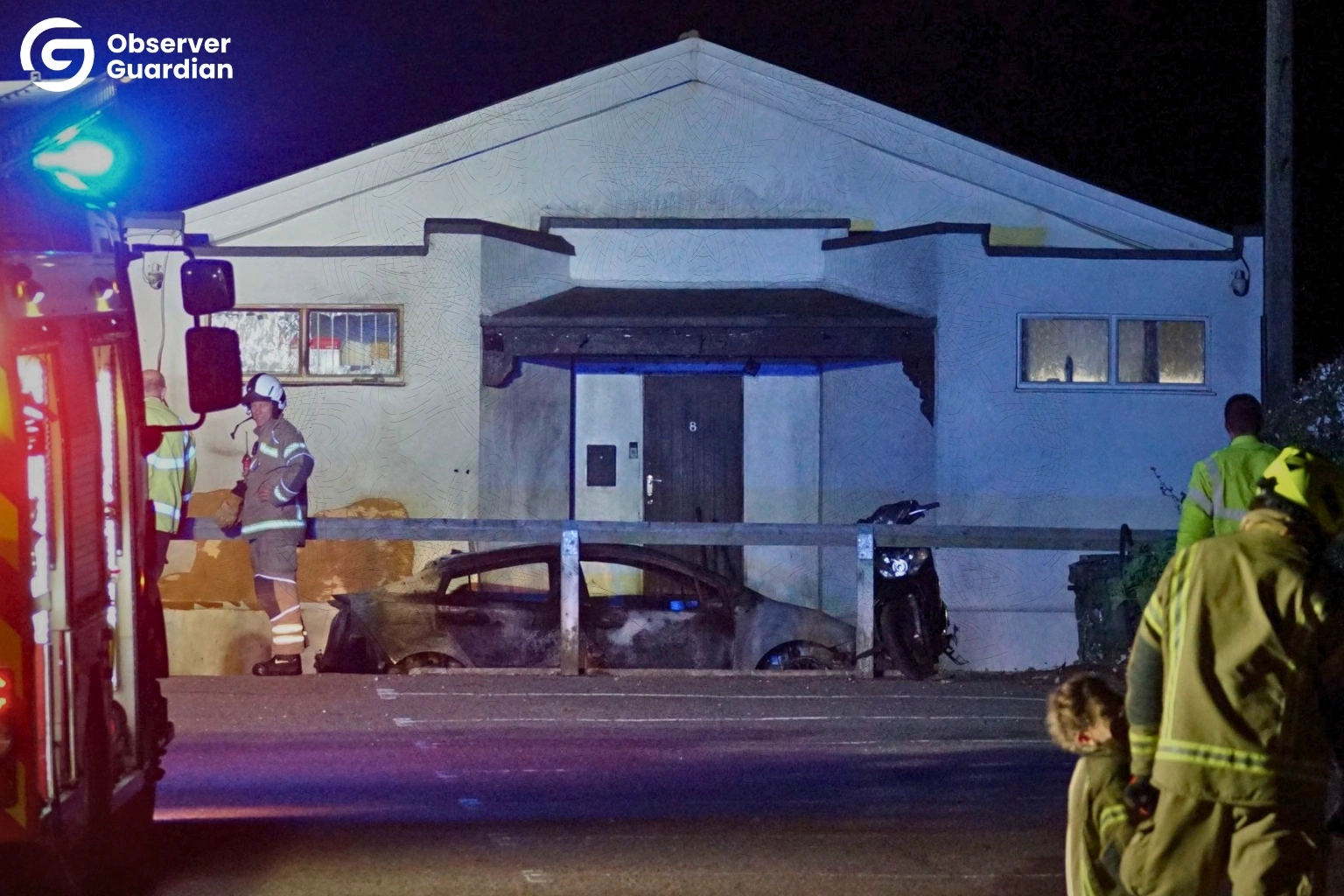On the evening of October 4, 2025, the quiet seaside town of Peacehaven in East Sussex was struck by an open act of terrorism. A mosque where the small Muslim community gathers for prayer was set ablaze while worshippers were still inside. Though the Police are treating it as a hate crime, as the fire dissipated, there was a sort of silence that fell across Britain, one that says much more about the nation’s conscience.
Notably, Britain as a nation prides itself on moral leadership and swift condemnation of religious hatred abroad. But when hate stems from home, when the victims are Muslim, the outrage takes a back seat. No official statement from Downing Street, no National Day of Mourning, just quiet indifference.
Had this been a synagogue, church, or temple, the response would have been different. Leaders would have voiced solidarity openly, headlines would have been filled with condemnation, and television anchors would have asked how such hatred could exist in modern Britain. However, in this case, rather than this incident becoming a national tragedy, the Peacehaven fire was portrayed as a small local incident that hardly made the evening news.
That silence is not a co-incidence, it is a choice, and one that speaks volumes.
The Double Standard and the Hypocrisy of Human Rights
People all over the world see British leaders’ strong opinions on freedom of expression and tolerance, but within borders, Islamophobia often goes unacknowledged. The Peacehaven fire is the perfect example; it is not an isolated event, it is part of a growing pattern that needs to be handled with the sensitivity it requires.
Over the past year, there has been a rising trend of hate crimes against Muslims. From graffiti on mosques and women in hijab being harassed to violent assaults and open hate rallies. Protesters have even marched outside Downing Street, chanting anti Muslim slogans, yet these gatherings have faced little to no serious action by the authorities.
Britain’s double standard when it comes to hate crimes is evident, a nation quick to condemn prejudice abroad but hesitant to confront it at home. For Muslims living in the UK, it sends a painful message that their lives and safety are not a priority.
Britain’s global standing as a defender of human rights depends on its credibility. How can a state that overlooks the rising tide of hate within its own borders claim moral authority abroad? Moral leadership is most meaningful when it is consistent.
Silence as Complicity
Politicians often say, “We stand against hate in all its forms,” but words that don’t translate into action are meaningless. Being quiet in the face of hate is not being neutral; it is being complicit. The absence of moral leadership allows Islamophobia to grow, and normalizing Islamophobia as part of public discourse may prove to be deadly for the nation itself.
For Muslims in Peacehaven and beyond, the fire was not just a criminal act, it was an attack on their sense of belonging. Silence over such incidents turns the promise of pluralism into just a hollow slogan.
Selective pluralism in Britain has forced local Muslims to take safety measures themselves, such as installing CCTV cameras in mosques. Parents often remind children to “be careful” walking to prayers. Fear has quietly crept into spaces that were meant to offer peace.
Following the Peacehaven Mosque incident, local Muslim leaders and interfaith allies came together and showed compassion that political leaders could not. They organized vigils, raised funds, and spoke of forgiveness. Their response, rooted in faith and resilience, is a lesson in humanity for those in power.
A Test of Conscience
The Peacehaven fire is more than an isolated hate crime. It is a test of Britain’s conscience. Britain does not need another carefully crafted statement about tolerance, what it needs is state level accountability. The fight against Islamophobia must be as strong as the fight against antisemitism or any other form of hate.
Britain needs a stronger enforcement of hate crime laws, consistent public condemnation of anti Muslim attacks, and education that teaches understanding rather than fear. Above all, it requires courage from political leaders to speak up, even when it is uncomfortable.
The flames in East Sussex may have been extinguished, but the silence that followed still burns. Britain must demonstrate that compassion transcends all religions. The question is, will the country confront the hate crimes that are reaffirming their roots, or will it continue to turn a blind eye until the next tragedy forces attention?
⚠ Disclaimer
The views and opinions expressed in this article are exclusively those of the author and do not reflect the official stance, policies, or perspectives of the Platform.







